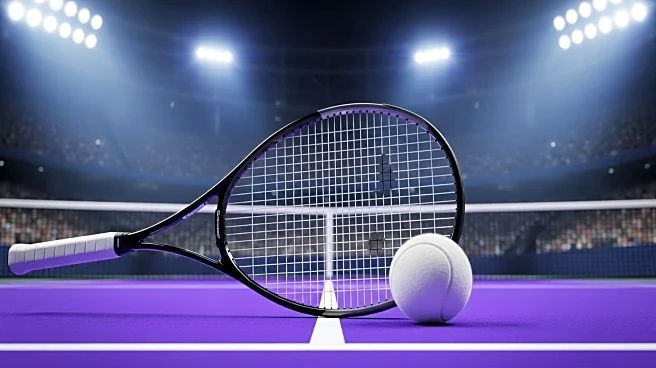What's Happening?
The WTA Wuhan 2025 quarterfinals feature a significant match between World No. 2 Iga Swiatek and No. 8 Jasmine Paolini. Scheduled for October 10, 2025, at Wuhan's Optics Valley International Tennis Centre, this outdoor hard-court battle is crucial for WTA Finals qualification in Riyadh. Swiatek, with a 61-14 season record and three titles, is coming off a Wimbledon 2025 victory. Paolini, boasting a 44-16 record, has won the Rome singles crown and the Roland Garros 2025 doubles title with Sara Errani. Swiatek has a dominant 6-0 record against Paolini, including a decisive win in the 2024 Roland Garros final. However, Paolini's hard-court performance (24-11 in 2025) adds intrigue to the matchup.
Why It's Important?
This match holds significant implications for the WTA Finals qualification, impacting the rankings and future tournament seedings. Swiatek's consistent performance on hard courts (40-9 record) makes her a formidable opponent, while Paolini's resilience and recent successes in China, including seven victories, position her as a strong contender. The outcome could influence the dynamics of women's tennis, showcasing the competitive nature of the sport and the potential for upsets. Stakeholders such as sponsors, fans, and the players themselves stand to gain from the visibility and prestige associated with advancing in such high-profile tournaments.
What's Next?
The winner of this match will advance to the semifinals, further solidifying their position in the WTA rankings and enhancing their chances for the WTA Finals in Riyadh. Both players will need to strategize effectively, with Swiatek likely focusing on her powerful forehand and Paolini leveraging her drop shots and net play. The match's outcome could lead to shifts in sponsorship deals and media attention, impacting the players' careers and the broader tennis community.
Beyond the Headlines
The match highlights the evolving landscape of women's tennis, where emerging players like Paolini challenge established champions like Swiatek. It underscores the importance of adaptability and mental fortitude in sports, as players navigate high-pressure situations. The cultural impact of such matches extends beyond the court, inspiring young athletes and contributing to the global popularity of tennis.











